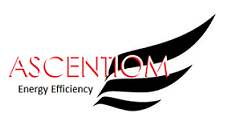Alliance to Save Energy
Founded in 1977, the Alliance to Save Energy is a bipartisan, nonprofit coalition of business, government, environmental, and consumer leaders advocating to advance federal energy efficiency policy.
American Council for an Energy Efficient Economy
The American Council for an Energy-Efficient Economy (ACEEE), a nonprofit research organization, develops transformative policies to reduce energy waste and combat climate change.
Better Buildings
Better Buildings is an initiative of the U.S. Department of Energy (DOE) designed to improve the lives of the American people by driving leadership in energy innovation. Through Better Buildings, DOE partners with leaders in the public and private sectors to make the nation’s homes, commercial buildings, and industrial plants more energy-efficient by accelerating investment and sharing successful best practices.
U.S Department of Energy
The Office of Energy Efficiency and Renewable Energy (EERE) is working to build a clean energy economy that benefits all Americans. Learn about our work in energy efficiency, renewable energy, and sustainable transportation.
Environmental and Energy Study Institute
Founded in 1984 by a bipartisan group of members of Congress to inform the debate and decision-making on energy and environmental policies, the Environmental and Energy Study Institute (EESI) is a 501(c)(3) non-profit organization dedicated to promoting sustainable societies.
U.S. Energy Information Administration
The U.S. Energy Information Administration (EIA) collects, analyzes, and disseminates independent and impartial energy information to promote sound policymaking, efficient markets, and public understanding of energy and its interaction with the economy and the environment.
ENERGY STAR
ENERGY STAR® is the government-backed symbol for energy efficiency, providing simple, credible, and unbiased information that consumers and businesses rely on to make well-informed decisions.
International Energy Agency
The International Energy Agency (IEA) is a Paris-based autonomous intergovernmental organization, established in 1974, that provides policy recommendations, analysis and data on the entire global energy sector, with a recent focus on curbing carbon emissions and reaching global climate targets, including the Paris Agreement.
Interstate Renewable Energy Council
IREC helps build the foundation for rapid adoption of clean energy and energy efficiency to benefit people, the economy, and our planet. For nearly 40 years, IREC has made clean energy possible for millions of Americans through cutting-edge solutions that advance renewable energy, electric grid modernization, and energy efficiency.
Midwest Energy Efficiency Alliance
The Midwest Energy Efficiency Alliance (MEEA) is a collaborative network, promoting energy efficiency to optimize energy generation, reduce consumption, create jobs and decrease carbon emissions in all Midwest communities.
National Association of State Energy Officials
Formed by the states in 1986, NASEO is a national non-profit association that facilitates peer learning among state energy officials, serves as a resource for and about State Energy Offices, and advocates the interests of the State Energy Offices to Congress and federal agencies.
National Renewable Energy Laboratory
NREL advances the science and engineering of energy efficiency, sustainable transportation, and renewable power technologies and provides the knowledge to integrate and optimize energy systems.
Northeast Energy Efficiency Partnerships
NEEP was founded in 1996 as a non-profit accelerating energy efficiency in the Northeast and Mid-Atlantic states. Today, it is one of six Regional Energy Efficiency Organizations (REEOs) funded, in part, by US Department of Energy to support state efficiency policies and programs.
Oak Ridge National Laboratory
ORNL’s mission, in support of the US Department of Energy (DOE) Weatherization and Intergovernmental Programs Office, is to work with federal, state, and local partners to promote the adoption of energy efficiency and renewable energy technologies and practices.
